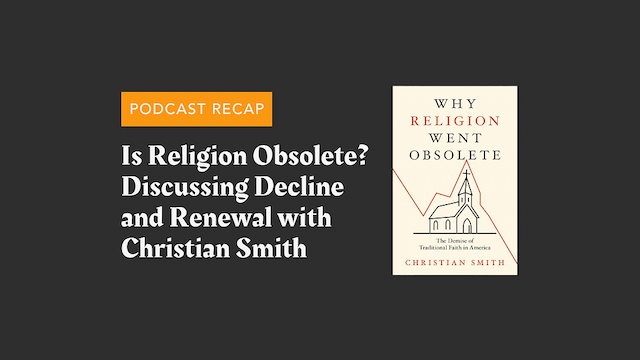Who are You Becoming?

Every decision we make shapes who we are and who we’re becoming. The new year is a perfect time to take inventory of our choices and habits.
Some questions to ask yourself could be: How did I spend my time last year? How did I use my money? What kind of content did I consume—what did I read, watch, or listen to?
Maybe you thought you were actively pursuing Jesus this past year, but when you reflect on these questions, you realize you lost sight of him in the busyness and messiness of life.
If this is you, it’s not too late to change the habits in your life.
Scripture reminds us that we are called to “put off the old self” and “put on the new self” (Ephesians 4:22-24). We’re a new creation—reflecting Jesus and his character. We’re called to live differently. But, putting off the old self and putting on the new self isn’t just a one-time decision; it’s a daily choice.
So, what are some daily habits and decisions can we commit to this year to continue becoming more like Jesus? Here are just a few ideas:
Practice gratitude.
With social media, it can be easy to look at the lives of others and become discontented with our own. But what if instead of endlessly scrolling through Instagram, TikTok, or Facebook, you paused and took time to thank God for what he’s given you?
In some seasons, it can feel really hard to look for the positive things in life. Maybe you just had a health crisis, lost a loved one, or are having a really hard time at work. Even in those moments, God still calls us to give thanks.
1 Thessalonians 5:18 says, “Give thanks in all circumstances; for this is God’s will for you in Christ Jesus.”
Instead of trying to disconnect, complain, or live in self-pity when you face hard circumstances, give thanks to God. Practice gratitude so that when you do face hardships, gratitude is already a habit in your life.
When we practice gratitude, it takes the focus off of ourselves and puts it on God. When others see us go to God in gratitude, they won’t define us by our circumstances or what we have or don’t have. They’ll see our Creator in us and know that we’re living differently.
Challenge: Write down three things you are grateful for every day.
Serve your community.
When someone asks me how life is, I’m guilty of defaulting to this response, “I’m just so busy.” But the truth is, we make time for what’s important to us—whether it’s time with friends or family, watching Netflix, or going on a run. We all have the same amount of time in a day. The question is, how are we using it?
When life feels busy, we tend to feel rushed and forget to observe what’s happening around us. But if we look at Jesus’ earthly ministry, Jesus lived an unhurried life and was never too busy where he couldn’t be interrupted.
An example of this in Scripture is in Mark 5:21-42. Jairus, a synagogue leader, begs Jesus to heal his dying daughter. On the way to Jairus’ house, a woman who has been bleeding for 12 years touches Jesus’ cloak. Jesus feels the power leave his body. Instead of ignoring it so he can go to Jairus’ house in time to save his daughter, Jesus pauses and asks who touched him. The woman confesses, and Jesus replies, “Take heart, daughter; your faith has healed you.”
Jesus had the eyes to see those around him, and he took the time to care for people even if they weren’t part of his schedule for the day. What would happen if we lived like this? Maybe the cashier at the store is having a bad day or a single mom needs help carrying groceries to her car or one of your neighbors just had surgery and needs a meal. In those moments, you can show Jesus’ love to them.
Challenge: Start each day by praying: “God, give me eyes to see the opportunities to serve those around me today.”
Rest.
We live in a culture that is addicted to dopamine. We can’t sit in silence anymore. We’re uncomfortable waiting in line at the store or sitting in the waiting room at the doctor’s office. We can’t go five seconds without checking our phones.
But Jesus calls us to rest and pause. He says, “Come to me, all who labor and are heavy laden, and I will give you rest. Take my yoke upon you, and learn from me, for I am gentle and lowly in heart, and you will find rest for your souls. For my yoke is easy, and my burden is light” (Matthew 11:28-30)
The kind of rest Jesus calls us to is different from watching your favorite movie or TV show, reading a cozy book, or taking vacation days. He calls us to a deeper rest in him that will renew our minds and refresh our souls.
Throughout his ministry, Jesus often withdrew to quiet places to pray and rest (Luke 5:16). During those times, he disconnected from the world around him and connected with God instead.
Challenge: Start with at least 5 minutes of silence and solitude every day. Remove all distractions. Take those moments to rest in God’s presence, pray, and reflect on God’s Word.
As we step into the new year, there are so many ways we can commit to living a life that models Jesus’ life. No matter what you decide to do this year, write it down and ask someone to hold you accountable. I’m praying that this list will help you draw closer to Jesus in 2025 and share his light with those around you.
Kali Gibson is the editor-in-chief for So We Speak and a copywriter for the Youversion Bible App.











